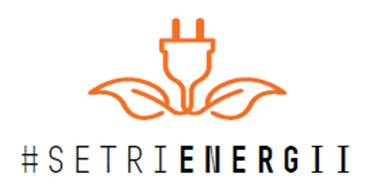#MUNIsaves
Energy Savings
In early October 2022, the #MUNIsaves campaign was launched to help save electricity, water and gas. In line with its strategy, MU has guided staff and students to behave responsibly through the Ten Energy Savings below. Comparative data after the heating season shows that staff and students have taken an exemplary approach to the situation. Savings and cost reductions were seen in four main areas - drinking water, heat, gas and electricity.
Ten Principles for Saving Energy at Masaryk University
Some things can be influenced by everyone's responsible behaviour. Thank you for sharing your sense of responsibility and contributing to saving electricity, water and gas with Masaryk University.

Keep the heat below 21°C and ventilate intensely but briefly!

Use air conditioning only when necessary.

Does that light really need to be left on? If not, shut it off!

Do not leave devices in standby mode and disconnect your phone from the charger once it’s full.

Make use of natural lighting and turn off the lights if there is sufficient light coming through the windows.

Do not use energy-guzzling devices such as electrical space heaters.

Do not run taps and showers at full flow - you can save up to 8 litres per minute!

Report dripping taps or leaking toilets to the building management.

Do not shower for longer than necessary! Shortening your shower by 1 or 2 minutes will save up to 600 litres of water per month, not to mention the savings on hot water heating!

Fill washing machines with as much laundry as you can and choose the lowest water temperature possible.



Principles for the economical operation of buildings
The aim is to achieve these values:
- Temperatures for normal rooms, offices, classrooms 21 °C, 18 °C in the downtime
- Temperatures for corridors and stairs 18 °C, 15 °C in the downtime
Data from savings studies:
- Temperatures currently heated on average in winter: 22-23 °C in faculty and rectorate buildings, 24-25 °C in dormitory and canteen buildings.
- Heating savings when adjusting the room temperature to 21 °C are:
- 0,7 GJ/year = 1 339 CZK/year for an 18 m2 office
- 0,9 GJ/year = 1 720 CZK/year for a 16 m2 dormitory room
- 2.4 GJ/year = 4 602 CZK/year for a 90 m2 classroom - Reducing the indoor temperature of the building by 1°C will reduce the total heat consumption of the building by approximately 6%.
- The gas savings from adjusting the room temperature to 21 °C are:
- 0.2 MWh/year = 825 CZK/year for an office of approx. 18 m2
- 0.3 MWh/year = 1 238 CZK/year for a dormitory room of approx. 16 m2
- 0.7 MWh/year = 2 888 CZK/year for a classroom of approx. 90 m2
Technical recommendations:
- Reduction of the equithermal curves of the heating circuits
- Faculty and Rectorate buildings by 10%
- Dormitories and canteens by 15% - Adjustment and shortening of the comfort heating time programs of the heating branches, i.e. adjustment of the start and end settings of the comfort mode before the beginning and before the end of the use of the premises.
- It is important to start heating at comfort temperature so that buildings do not heat up to operating temperature unnecessarily early. Specific to buildings without weekend operation is then the tuning of the Monday start (CAUTION, however, if the building is not heated to operating temperature at the start of the working hours, users tend to turn up the heating on the thermostatic controls and then do not turn them back down, so they overheat during the day).
- Buildings have thermal inertia, so it is possible to switch off the comfort mode before the end of normal operation.
- Visible indication of the correct position of the thermoregulation heads:
- Residential rooms in position 2.5
- Corridors and other communal areas in position 1.5
Organizational recommendation:
- Do not interfere with the setting of the thermoregulation heads during the day, inform the building management if the room is cooler (especially in the morning).
Data from savings studies:
- Turning on the cooling of one office space over a summer weekend will increase electricity consumption by about 22 kWh, i.e. 152 CZK/weekend.
Technical recommendations:
- Setting the measurement and control (MaC) of the central cooling units to 28 °C in the common areas.
- Setting the MaC of the central cooling units to 27 °C in the living rooms.
- Service setting of indoor units or controls to a minimum temperature of 27 °C (or 26 °C depending on the category of work) where technically possible.
Organizational recommendations:
- Only run cooling when persons are present or work is in progress, where technically possible.
- Check that the internal units are set to a minimum temperature of 27 °C (or 26 °C depending on the category of work) where the limit cannot be set by service intervention.
- Do not open windows when the air conditioning is running.
Natural ventilation (through windows)
Data from savings studies:
- One window, opened "on the vent" overnight, leaks 5.5 kWh, i.e. 38 CZK/night (at temperatures around 0°C).
Organizational recommendation:
- Ventilate according to the volume of the room depending on the outside temperature and weather conditions (approx. 1-3 minutes).
Forced ventilation
Data from savings studies:
- Savings by optimizing the AC operation for the lecture hall for 24 hours:
- 12 kWh, i.e. 83 CZK/day on electricity consumption for fans,
- 15 kWh, i.e. 78 CZK/day on gas consumption for heating.
Technical recommendation:
- Reduction of the required outlet air temperatures to parameters corresponding to indoor spaces (e.g. 21 °C for living rooms).
Organizational recommendation:
- Run forced ventilation only when people are present or work is in progress, where technically possible.
Data from savings studies:
- The consumption of one lit room the size of an office outside office hours is about 0.35 kWh/hour, i.e. 2.40 CZK/hour.
Organizational recommendations:
- Switching off the lights when there is sufficient light through the windows.
- Consistently control the switching off of lights outside of operating hours.
Hot water
Technical recommendation:
- Set the desired temperature at the source (max. 55 °C) to ensure the minimum required hot water temperature (45 °C) at the outlet valve.
Optimisation of hot water timing:
- For faculty and rectorate buildings, turn off hot water circuit circulators outside normal operating hours.
- For dormitories, switch off the hot water circulators between 22.00 and 6.00.
Organizational recommendations:
- Do not run the taps at full flow (the difference in hot water consumption is up to 8 litres per minute).
- Check for leaks when the tap is turned off.
Water savings
Data from savings studies:
- The full-flow battery consumes up to 8 litres per minute more than when used economically.
- With a two-level flush, the consumption for economical flushing is up to 6 litres less drinking water per flush.
- In the extreme case of a malfunction, over 600 litres of drinking water per hour will flow through the toilet.
Organizational recommendations:
- Do not run the batteries at full flow unless necessary.
- Check for leaks when the faucet is turned off.
- Use of dual flush toilets.
- In the event of a leaking toilet or urinal, report the fault to the operations staff immediately.

Link to the MU Strategic Plan 2021-2028
Vision 2028:
A university that is an inspiring community which, in its principles and daily activities, fully respects and fulfils the principles
of social responsibility and contributes to meeting the Sustainable Development Goals, in accordance with which it leads its students and employees.
Section "Institution Management and Infrastructure":
Strategic objectives contributing to addressing sustainable development challenges:
- In accordance with the principles of sustainable development, manage energy resources, water and waste and strengthen
informed management enabling the efficient use of the built premises as well as property management.
Selected measures:
- Expansion and optimisation of CAFM (Computer Aided Facility Management) for the efficient operation of university buildings, including space management.
- Implementation of active infrastructure energy management to strengthen its efficient use.
- Implementation and development of the MU BMS (Building Management System) and related methodologies within capital
construction and repairs to university buildings.
Operation of the University According to Sustainable Development Principles
- Creation and implementation of a responsible public procurement strategy taking into account economic, environmental and social concerns, including the application of qualitative criteria.
- Creation and implementation of strategies for energy, water and waste management.
- Implementation of systemic measures to reduce the volume of non recyclable waste produced, to increase the share renewable energy sources used, for saving water, the use of rainwater and the use of grey water.
- Producing clear principles of efficient and responsible management of energy and water and motivation of students and
employees to comply with them. - Reducing the energy consumption of buildings and modernising related technological equipment.
Suggestions for further energy savings:
Inspire others and lead by example. Write to us with your suggestions and recommendations for energy savings in your faculty or workplace.
